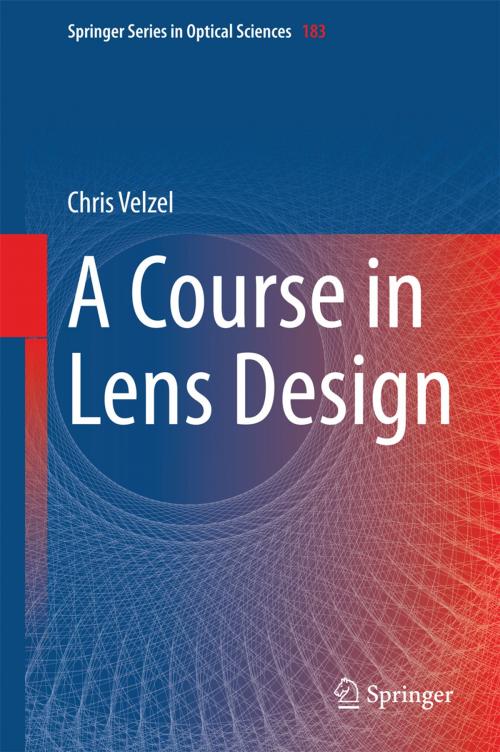| Author: | Chris Velzel | ISBN: | 9789401786850 |
| Publisher: | Springer Netherlands | Publication: | March 28, 2014 |
| Imprint: | Springer | Language: | English |
| Author: | Chris Velzel |
| ISBN: | 9789401786850 |
| Publisher: | Springer Netherlands |
| Publication: | March 28, 2014 |
| Imprint: | Springer |
| Language: | English |
A Course in Lens Design is an instruction in the design of image-forming optical systems. It teaches how a satisfactory design can be obtained in a straightforward way. Theory is limited to a minimum, and used to support the practical design work. The book introduces geometrical optics, optical instruments and aberrations. It gives a description of the process of lens design and of the strategies used in this process. Half of its content is devoted to the design of sixteen types of lenses, described in detail from beginning to end. This book is different from most other books on lens design because it stresses the importance of the initial phases of the design process: (paraxial) lay-out and (thin-lens) pre-design. The argument for this change of accent is that in these phases much information can be obtained about the properties of the lens to be designed. This information can be used in later phases of the design. This makes A Course in Lens Design a useful self-study book and a suitable basis for an introductory course in lens design. The mathematics mainly used is college algebra, in a few sections calculus is applied. The book could be used by students of engineering and technical physics and by engineers and scientists.
A Course in Lens Design is an instruction in the design of image-forming optical systems. It teaches how a satisfactory design can be obtained in a straightforward way. Theory is limited to a minimum, and used to support the practical design work. The book introduces geometrical optics, optical instruments and aberrations. It gives a description of the process of lens design and of the strategies used in this process. Half of its content is devoted to the design of sixteen types of lenses, described in detail from beginning to end. This book is different from most other books on lens design because it stresses the importance of the initial phases of the design process: (paraxial) lay-out and (thin-lens) pre-design. The argument for this change of accent is that in these phases much information can be obtained about the properties of the lens to be designed. This information can be used in later phases of the design. This makes A Course in Lens Design a useful self-study book and a suitable basis for an introductory course in lens design. The mathematics mainly used is college algebra, in a few sections calculus is applied. The book could be used by students of engineering and technical physics and by engineers and scientists.















